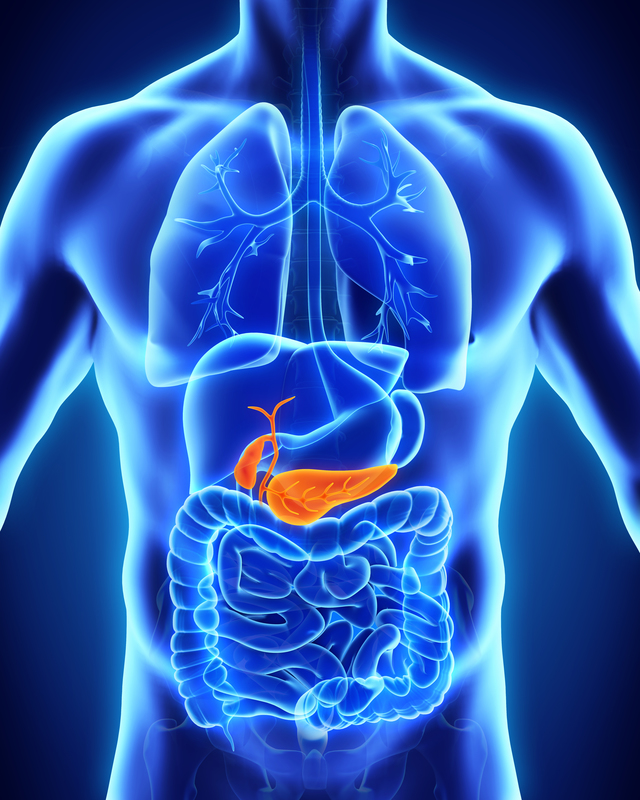11.3 The pancreas
The pancreas is located in the upper abdomen behind the stomach. It weighs about 100 grams. The pancreas is both an endocrine and exocrine gland, because it secretes both hormones and digestive enzymes.
The digestive enzymes secreted by the exocrine portion of the pancreas break down nutrients in the duodenum, the first part of the small intestine.
The endocrine portion of the pancreas secretes its hormones into the blood stream. Your pancreas produces insulin and glucagon, two hormones that regulate the blood's sugar levels. Insulin and glucagon are secreted from your pancreas directly into your blood.
The carbohydrates that are part of your diet are digested and converted into glucose. Glucose is the main source of energy for cells, especially in the brain.
Some hormones secreted by the pancreas increase the levels of glucose in the blood. Insulin enhances the uptake of glucose into cells.
As blood flows through the pancreas, it regulates the amount of insulin secreted by the pancreas, thereby keeping the blood sugar level steady. Insulin is a hormone that helps to move sugar, or glucose, into your body's tissues. If insulin secretion is insufficient, the body's blood sugar levels will increase.
This causes the sugar to be excreted in the urine. The person has diabetes. Initial symptoms include thirst, tiredness and increased urination.
 Lack of insulin causes diabetes. Injections of insulin can help treat diabetes. Insulin cannot be administered as a tablet because it is a protein.
Lack of insulin causes diabetes. Injections of insulin can help treat diabetes. Insulin cannot be administered as a tablet because it is a protein.
Signs of an advanced disease include weight loss and a smell of acetone in the breath: in the absence of glucose, the body begins to draw energy from adipose tissue. The person's personality may also change due to lack of glucose in the brain.
There are two types of diabetes: type 1 diabetes, once known as juvenile diabetes, is treated with insulin. However, exercise and diet may be sufficient to treat type 2 diabetes, formerly known as adult-onset diabetes. Diabetes is considered a major public health problem worldwide.
| Endocrine gland | Hormone | Effects |
|---|---|---|
| pancretic | insulin | increases the uptake of glucose from the bloodstream into cells (i.e., lowers blood sugar levels) |
| pancreatic | glucagon | increases hepatic glucose production and blood flow |
